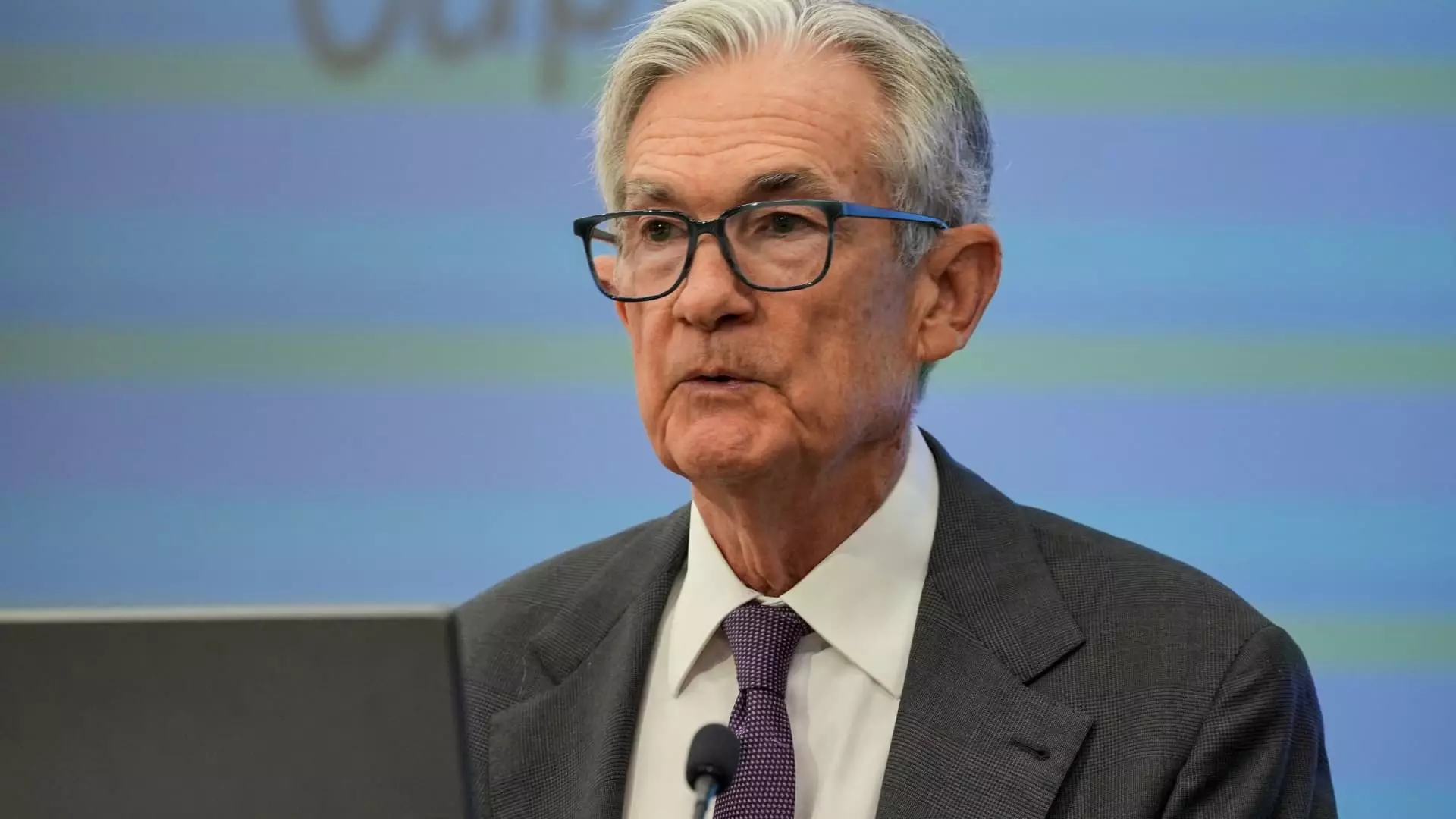In an era characterized by unprecedented challenges, Jerome Powell faces a moment of profound scrutiny—not only from markets but also from a highly politicized landscape that threatens to erode the independence that has long underpinned the Federal Reserve’s credibility. As Powell prepares for his final keynote at Jackson Hole, the stakes extend far beyond customary policy updates. The broader question looms: Can he withstand the relentless political pressure and preserve the integrity of a once sacrosanct institution? Or will this moment mark a redefinition of the Federal Reserve’s role—one increasingly compromised by partisan forces seeking to manipulate monetary policy for short-term gains?
In the wake of relentless attacks from the Trump administration, Powell finds himself in a precariously delicate position. The president’s vocal demands for interest rate cuts and aggressive criticism of the Fed’s decisions threaten to politicize the institution, undermining its independence. Historically, the Fed’s autonomy has served as a bulwark against electoral whims, but in today’s polarized climate, that shield is under relentless assault. Powell’s response—whether measured restraint or assertive independence—will send a powerful signal about the future of American monetary policy, a signal that could significantly influence global economic stability.
The Politics of Pressure: A Battle for the Fed’s Soul
The Trump administration’s tactics reveal a broader narrative: an attempt to erode the central bank’s autonomy by coupling economic assertions with political hostility. While the White House’s direct influence has been limited legally, its capacity to sway public perception and exert psychological pressure remains potent. The recent controversy surrounding Fed Governor Lisa Cook exemplifies this strategy—an unfounded attack designed to equate her policy decisions with misconduct, thereby politicizing the very fabric of the Fed’s leadership.
Powell’s anticipated speech might serve as a subtle yet resolute affirmation of independence. Unlike past addresses where he emphasized the importance of data-driven decision-making, this occasion may compel him to articulate the importance of insulating monetary policy from political interference explicitly. The question is whether Powell will successfully navigate this minefield without succumbing to the temptation to curry favor or appear conciliatory, which could further weaken the Fed’s standing in the eyes of markets and governance.
The Policy Puzzle: A Shift or Solidification?
Behind the bravado and political posturing lies a more complex policy landscape. The Fed’s “Economic Outlook and Framework Review” signals a moment of introspection—an opportunity to recalibrate long-standing strategies amid shifting economic realities. For years, the central bank embraced “flexible average inflation targeting,” aiming to allow inflation to run slightly hot to combat unemployment and support marginalized groups. However, that approach contributed, in some circles, to the persistent inflation surge seen in recent years, which has upended trust in the Fed’s inflation management.
Expectations are high that Powell might pivot back toward a more aggressive stance on preemptive rate hikes, aiming to restore credibility and prevent inflation from becoming a runaway phenomenon. That shift could be controversial, especially with labor markets presenting a paradox: while some deem the employment situation “solid,” others highlight signs of weakness and uncertainty. The challenge is whether the Fed can impose preemptive policies without triggering recessionary risks or igniting populist backlash.
Markets are eager for clarity, interpreting Powell’s words as signals—whether explicit or nuanced—about future rate moves. Some analysts suggest that Powell will strike a cautious tone, avoiding definitive commitments, yet subtly indicating a readiness to tighten monetary policy if inflation expectations threaten to become unanchored. This dance between reassurance and caution reflects the fundamental dilemma: can the Fed maintain credibility in an environment of rising political interference and economic volatility?
Reconsidering the Fed’s Framework
The proposed rollback of the 2020 policy framework overhaul underscores another critical dimension: the fight over the institution’s foundational principles. The adoption of “flexible average inflation targeting” was a bold attempt to adapt to a new economic era, emphasizing inclusivity and flexibility. Yet, mounting inflation and economic instability have prompted calls to revert to pre-pandemic policies that prioritize preemptive action to tame inflation.
Such adjustments are far from trivial; they reflect a broader ideological debate about the role of central banks in balancing growth, employment, and stability. For liberals with centrist leanings, the challenge is to ensure that the Fed’s policies remain equitable and responsive, avoiding the pitfalls of either excessive inflation or excessive austerity. Powell’s ability to communicate a vision that combines prudent inflation control with a commitment to equity could be pivotal in restoring some trust in the Fed’s mission.
It’s also crucial to recognize that the inflation spike was not solely the result of monetary policy. External shocks, including global supply chain disruptions and geopolitical tensions, have complicated the picture. Nonetheless, the Fed’s framing of its long-term goals must acknowledge these realities without abandoning its commitment to safeguard economic stability and social fairness.
The Political Economy of Credibility
The Federal Reserve’s resilience hinges on whether it can maintain its independence at a time when political forces are eager to undermine it. Powell’s speech will be scrutinized not just for policy signals but for signs of strength or weakness in the face of partisan encroachment. A firm stance emphasizing the importance of insulated policymaking could serve to reaffirm the institution’s central role in safeguarding economic stability.
Conversely, any perceived capitulation or ambiguity might accelerate the erosion of public trust, setting a dangerous precedent. For liberals committed to a balanced and equitable economic strategy, the challenge is to defend an institution that remains vital—a guardian of stability that must be protected from populist distortions and partisan meddling.
Ultimately, this moment in history tests whether the Federal Reserve can transcend the political fray and uphold its core responsibilities. Powell’s speech will be a litmus test—an opportunity to either reinforce the credibility of monetary policy as an independent force or to signal its vulnerability to political manipulations. The direction taken here could profoundly influence America’s economic trajectory for years to come, reinforcing the necessity of steadfast resilience and principled independence within the central banking system.

